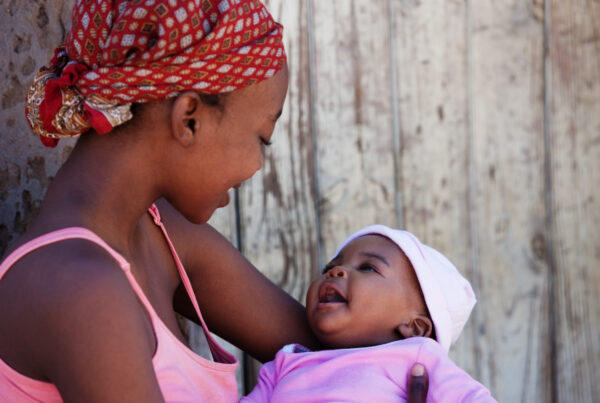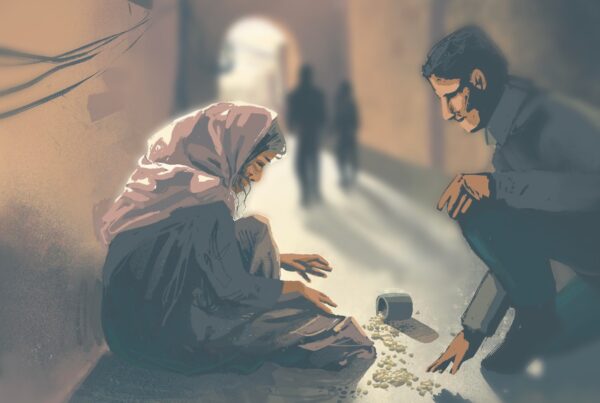As the sun beats down on the brightly painted apartment building in a bustling South Asian city, several women shuffle up the stairs. There’s a sense of nervous excitement in the air as they gather in a small flat.
A circle of vibrant reds, yellows, and blues adorns the room as they arrange themselves in a circle of gracefully wrapped dresses. We’re greeted with a flash of smiles as we say, “Good morning.”
These women are beginning their first week of training to become new employees at the Freedom Bakery, a spirit-led business created by missionary entrepreneurs. Just down the street is one of the most notorious red-light districts in the world where more than 10,000 women and children are trapped in the sex trade.
Until now, the women in this room were among those numbers.
But this week they embark on a journey towards a new life—one of freedom from the bondage of the South Asian sex trade.
This is the story of the women of the Freedom Bakery and how God is transforming their lives, the lives of their families, and the community against all odds.
Creativity in the Face of Complex Problems
It was a daunting task to walk through the red-light district for the first time. The sight of countless women waiting on corners, trying to make enough money to survive the day, was overwhelming. Some were owned and enslaved, bought by traffickers. Some were widowed and seen as unemployable, never educated as kids. Many had families and said, “I will do whatever it takes to take care of them.”
Over several months, we built relationships with these women, many of whom couldn’t even bring themselves to make eye contact with us. Over time, we began to understand the heart-wrenching realities of their lives and witnessed the depths of filth and depravity that they were forced to endure.
It became clear just how deeply they were affected by economic and social oppression. No matter how they ended up working on the streets, society viewed them as tainted. Even if they managed to escape, no one would give them a job.
We immediately felt God breaking our hearts and urging us to be with these women that He loves and to help give them hope.
Compelled by the mighty work that God has done in our own lives, we felt called to serve in a community that faced significant challenges. This led us to a “closed-access country,” where practicing Christianity and sharing the gospel are strictly prohibited. Because traditional missionary work was not going to be an option, we had to get creative to serve these women.
We decided to launch the “Freedom Bakery,” a Business for Transformation (B4T) initiative.
It’s not just a “cover” for missionary work—we are a legitimate and sustainable business—but we are focused on people, providing women in the sex trade with an escape route through employment, training, and education, while showing them the way to spiritual freedom.
“Business not only helps with credibility to be in this country, but I am literally around the community for forty hours a week.” – Serge Missionary
After countless conversations and recruiting efforts on the streets, the team still had no idea how many women would actually show up.
But on the first morning of training, five women arrived. On the second day, one woman, Singh*, brought along her friend Shira* to join them. By day three, they were up to seven.
Little did we all know, this was only the beginning of the incredible story that was about to unfold in front of us.
Transforming Lives through Healing and Empowerment
As the women arrived for their first day of training, no one really knew what to expect.
These women, who blessed us with their trust, who were once forced to put on bright lipstick and work the lines several times a day, were now putting on aprons and preparing to learn how to form cinnamon rolls, use rolling pins, and make cupcakes—all for a dignified salary.
We knew that these women had been robbed not only of income but also of many liberties, opportunities, and self-respect. When each new woman joins the bakery, over the course of three months, they not only receive baking training but also capacity building as well. This includes many life skills classes, such as math, English, hygiene, first aid, and personal finance. They also have the opportunity to participate in routine group therapy sessions, a safe space to slowly work through their trauma.
We hope to help them reclaim a sense of dignity and purpose in a community that asks for nothing in return.
“The woman who’s standing in front of me, she has worth, she has value. And if we can empower her, then the ripple effect of that is that her daughters might not have to be in the trade one day.”- Serge Missionary
Each day we pour into their lives through prayer, devotionals, and Bible stories— both inside the cafe and outside the cafe in weekly small group gatherings and church—immersing them in the love of the chain-breaker Himself, Jesus.
As their training progresses, we watch them grow more confident and as language skills improve (on both sides!) and the clarity and depth of our conversations improve as well. They start to laugh and joke with us.
Then comes the baking training. We place the baking tools and ingredients on the table, and the women eagerly gather around.
One of us holds up a rolling pin and asks, “What is this?” “Rolling pin,” they chorus back. Then, a spatula, ”What is this?” “Espatula,” says Joni* with a bright smile. “Espatula is my favorite,” she adds.
Pretty soon, they’re all hovering over the table, picking up icing sugar, forks, cinnamon, and measuring cups, asking questions, and quizzing each other. The kitchen fills with the sound of their voices, bouncing back and forth.
It’s a beautiful harmony and a testament to their journey of hope and new life—something that has spread far beyond the bakery walls.
Transforming Community through Hospitality and Love
When we first welcomed these women, we knew that we didn’t have all the answers. We simply opened our hearts and our doors, and by God’s grace, we have been able to provide a safe haven where these women can learn new skills and experience the unconditional love of Christ.
Despite the challenges we faced, such as language, cultural barriers, a lack of capital, and our own shortage of grace, despite ourselves…we’ve been privileged to witness the incredible work that God has done that still continues to unfold:
Over the past decade, the bakery has grown from a mere dream to a fully functioning café that is known not only for the best coffee in the city but also for its warm hospitality.
It has become much more than a place of employment; it has become a place where the love of Jesus is expressed—a place that nourishes community and connection, in a culture fraught with alienation and division.
But it’s these women who are putting in the hard work.
The risk for them to leave…
The courage it takes to step out…
The strength to keep walking…
We have learned so much from these women.
We try to understand and celebrate the glimmers of progress that we are granted day by day:
One woman who especially excelled in her work was able to find another job for more money and responsibility. But two weeks later she returned, saying, “They didn’t sit together in the mornings and pray, sing, or talk about God. Can I have my old job back?”
Another woman was able to send her kids to school, changing the whole narrative and future of her family. While not yet a believer, she attributes that to Jesus and acknowledges that He is actively working in her life.
We know that the road to healing is not easy or quick. The memories, struggles, addictions, and shame of life in the brothels can be overwhelming.
In the streets of our city, people dance and beat drums before statues, hoping that if they make enough noise, their gods will hear them and grant their requests.
But in these rooms, tears fall as these children of God hear for the first time of a suffering Savior, who cares for the downtrodden and hears their faintest whispers.
Through the Freedom Bakery, we are seeing a glimpse of God’s story of redemption and renewal that He is writing in all of us.
And we know that every cinnamon roll, every cup of coffee shared, and every life transformed is a testimony to His grace and love.
*Names have been changed for security and out of respect for the individuals involved.

Will you give a special gift today to support Business for Transformation?
You can help send missionaries to establish small businesses to share the light of Jesus, often in countries that are not open to Christian mission work.






